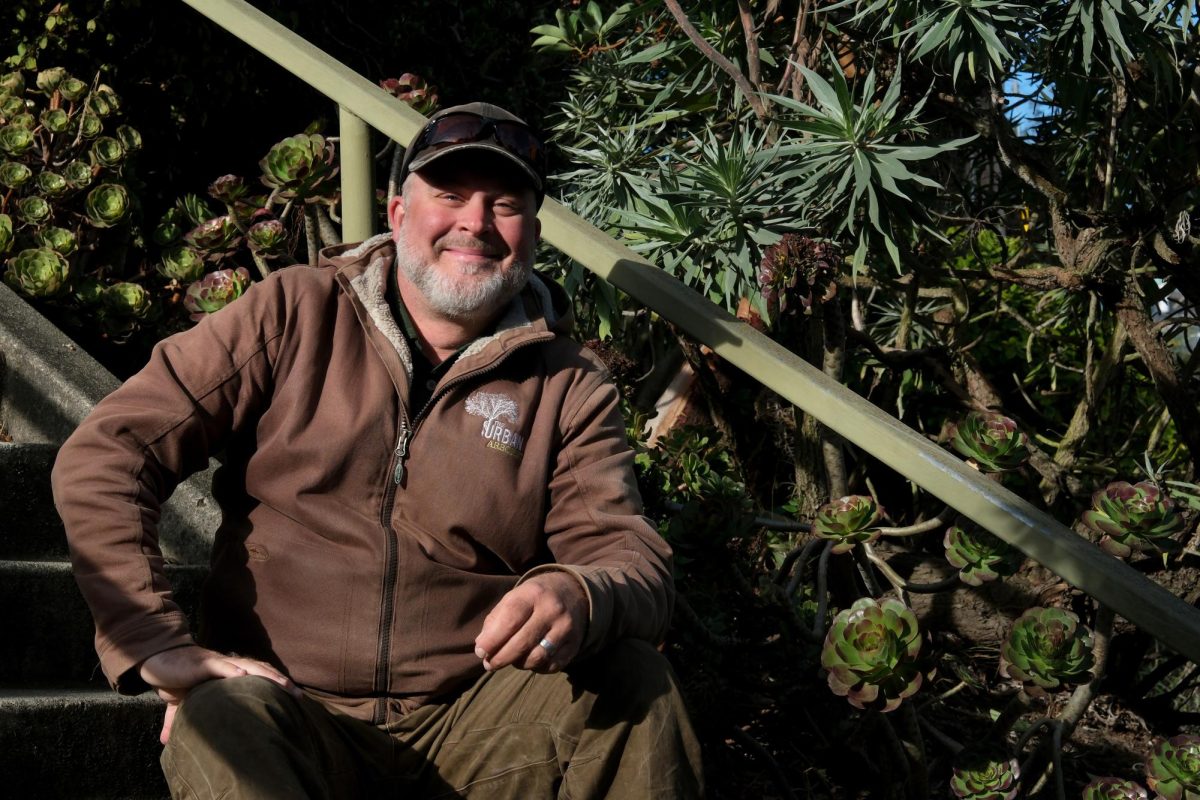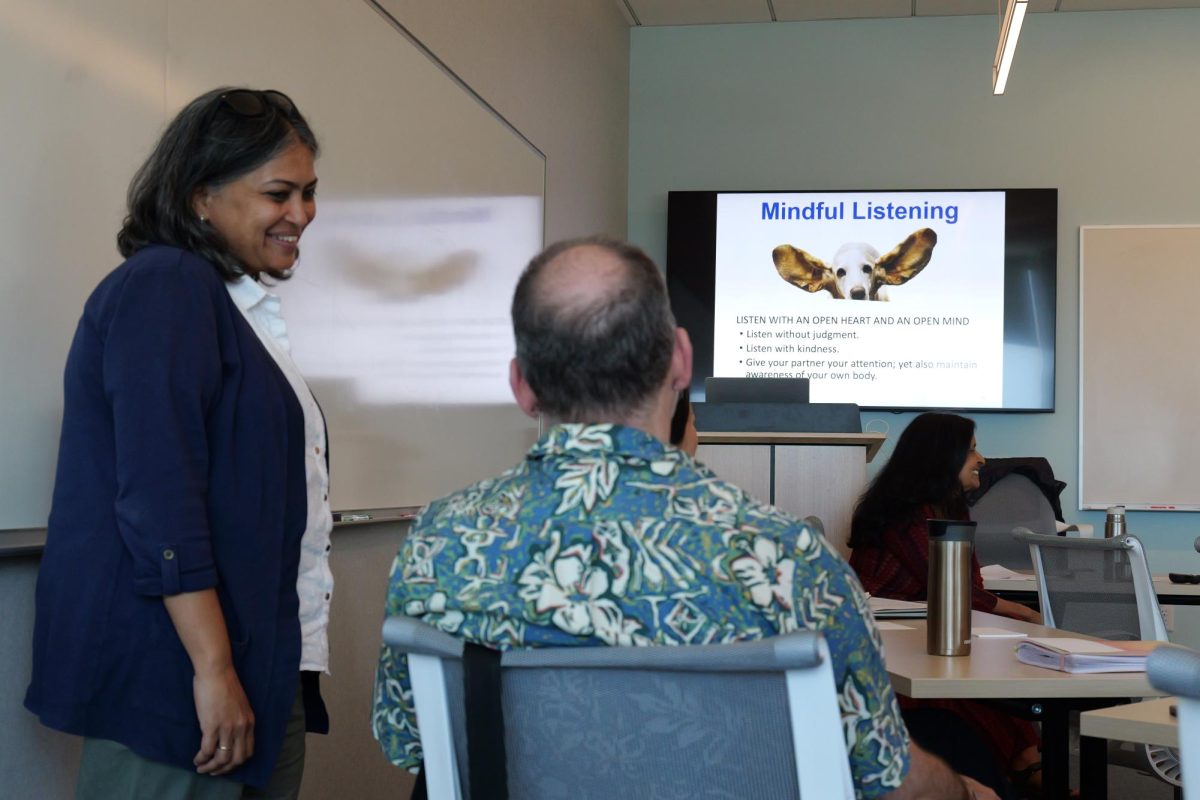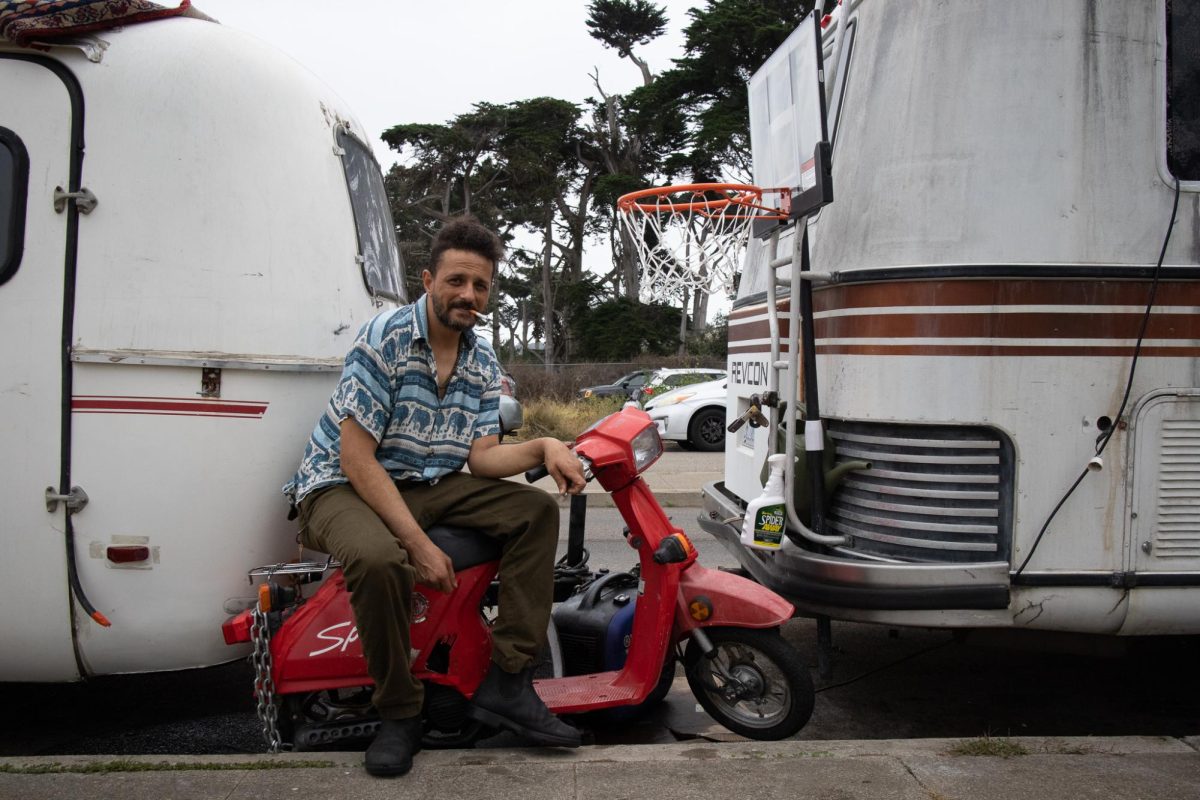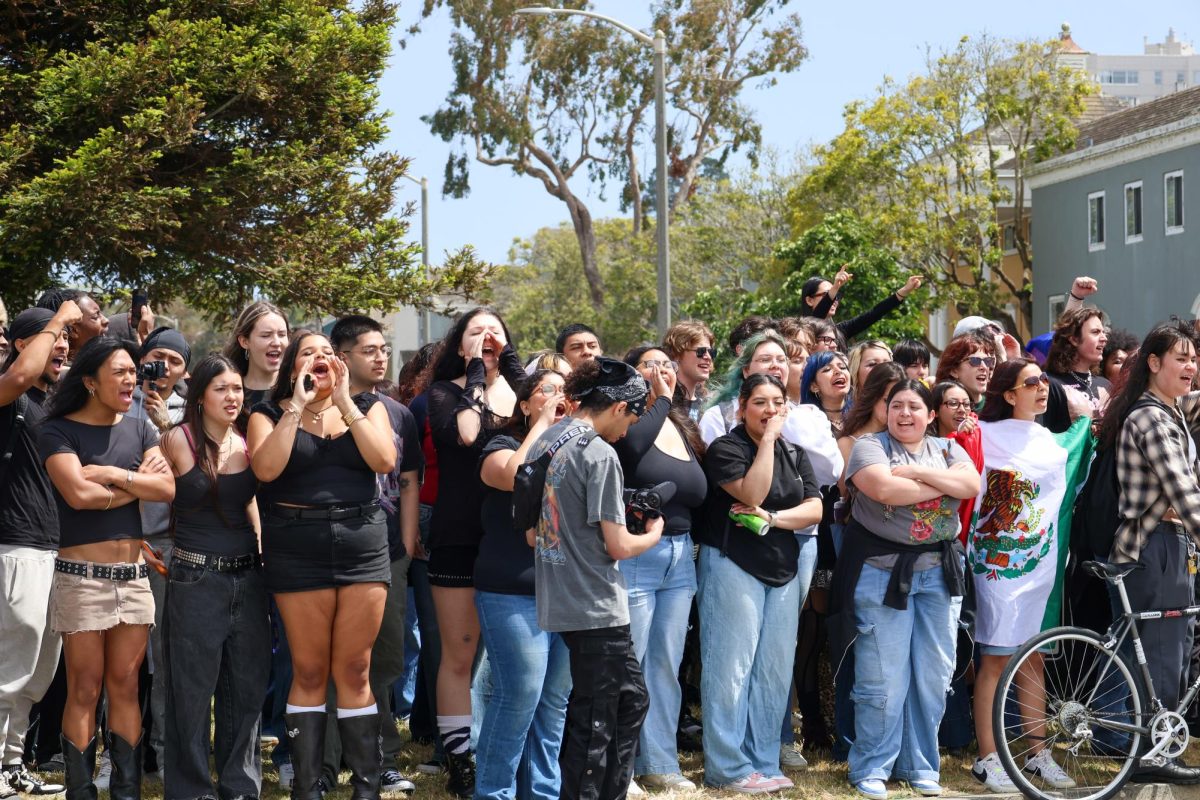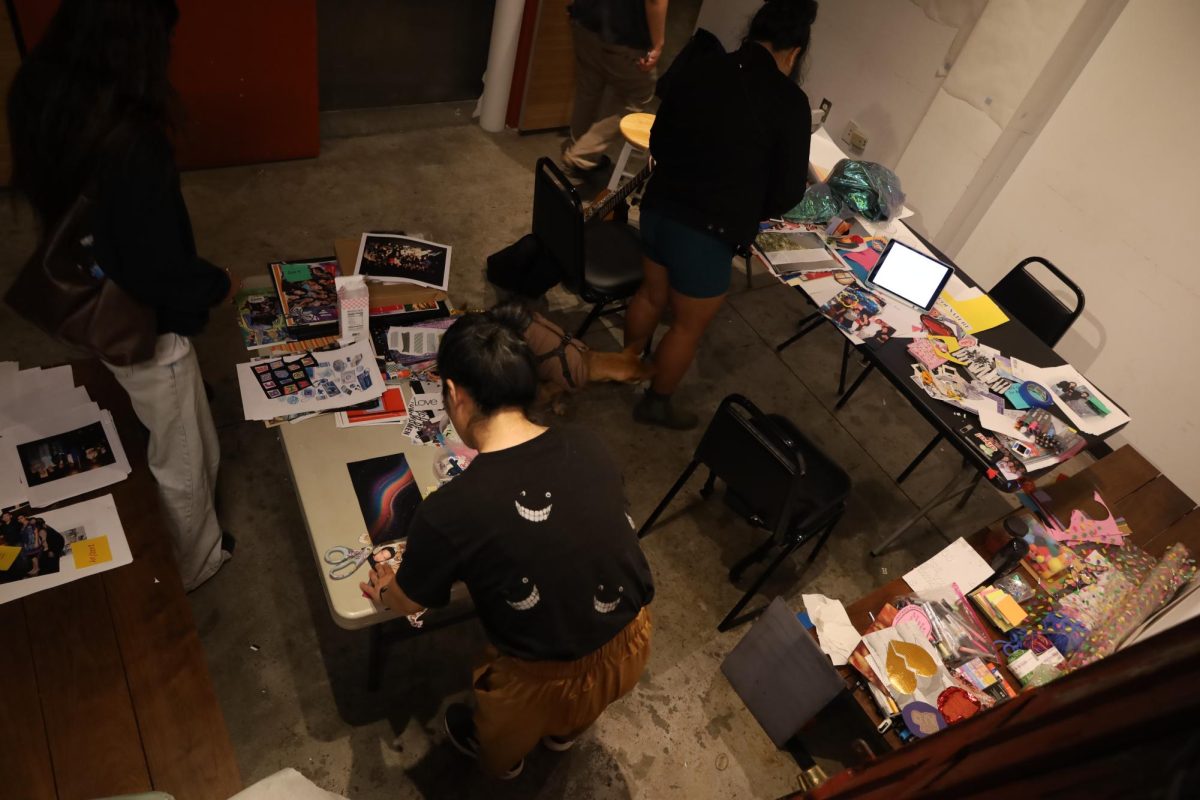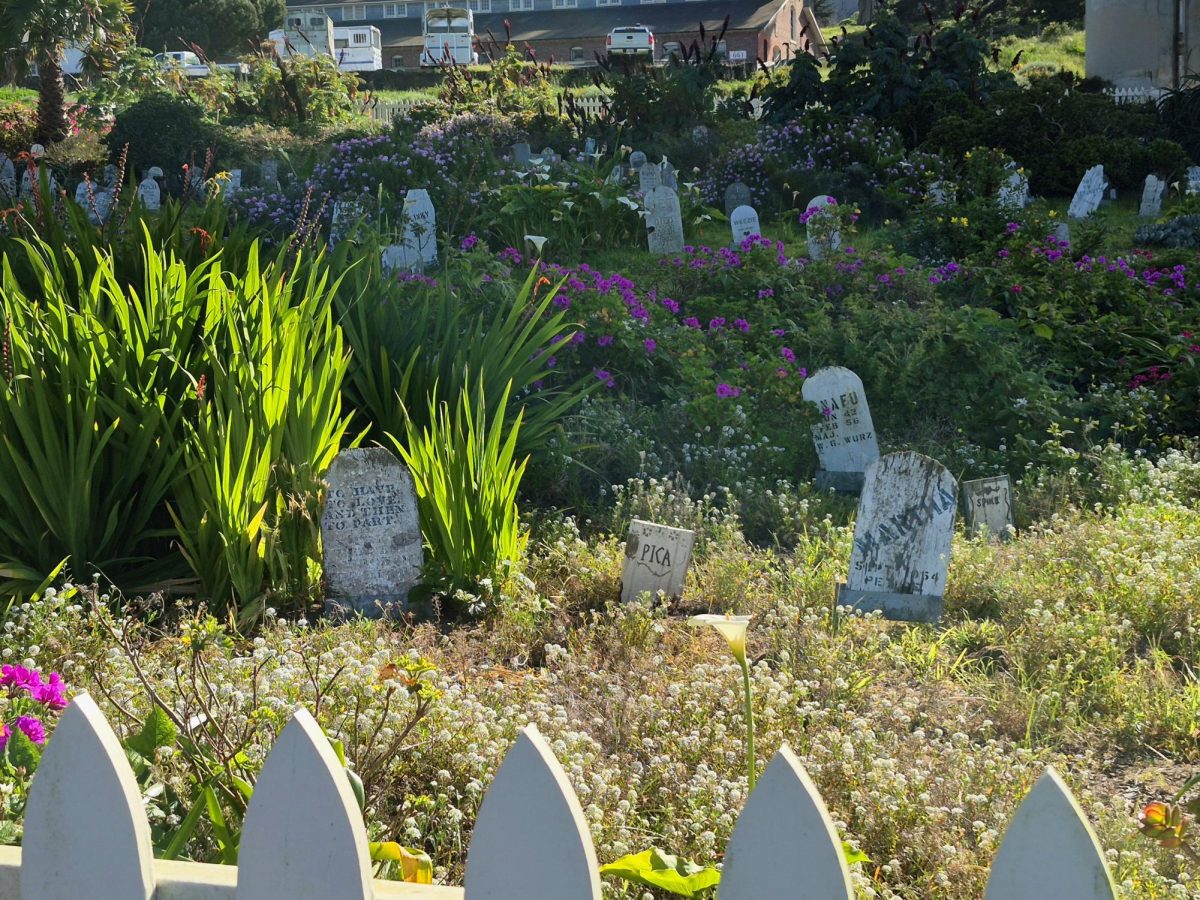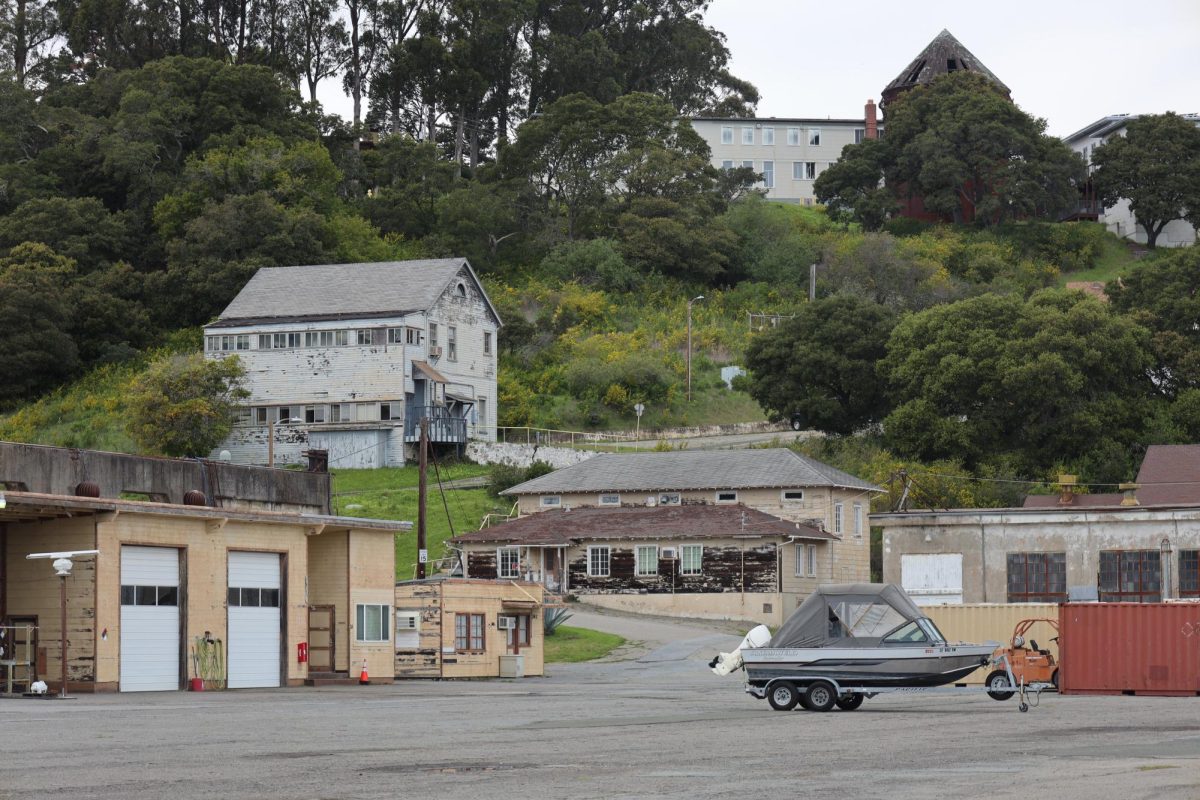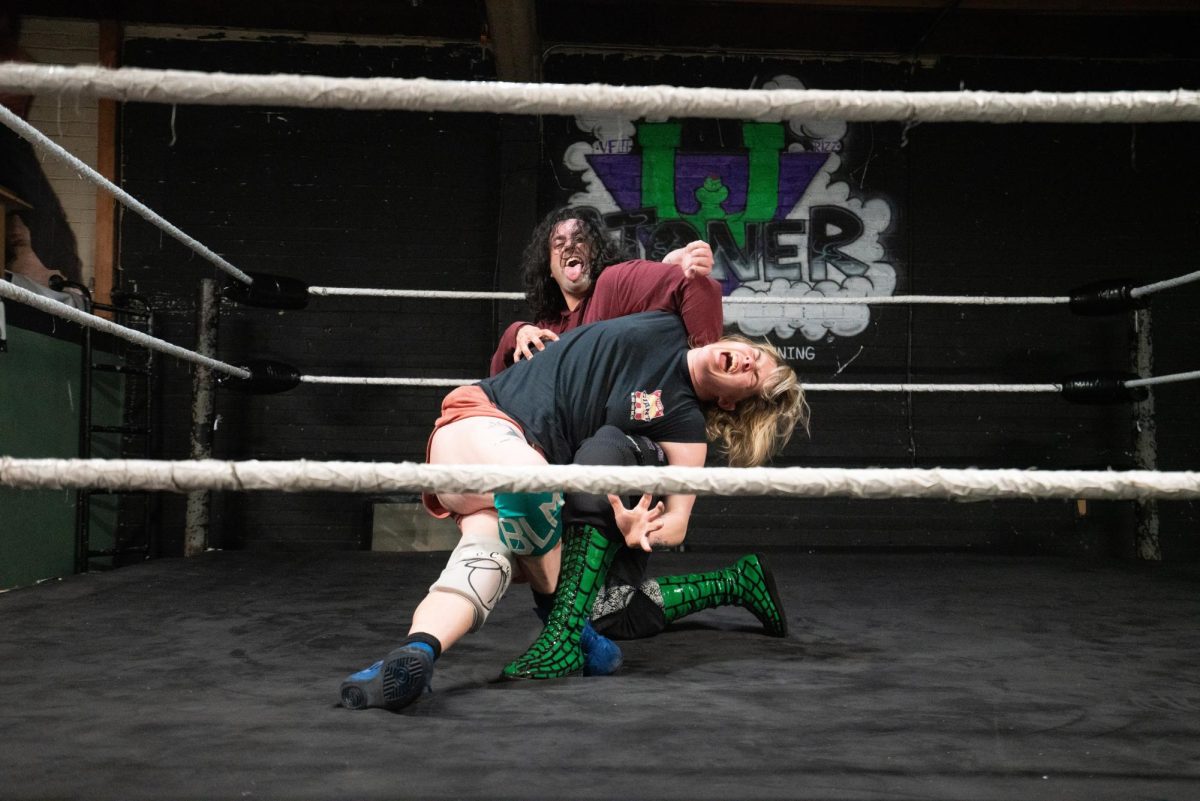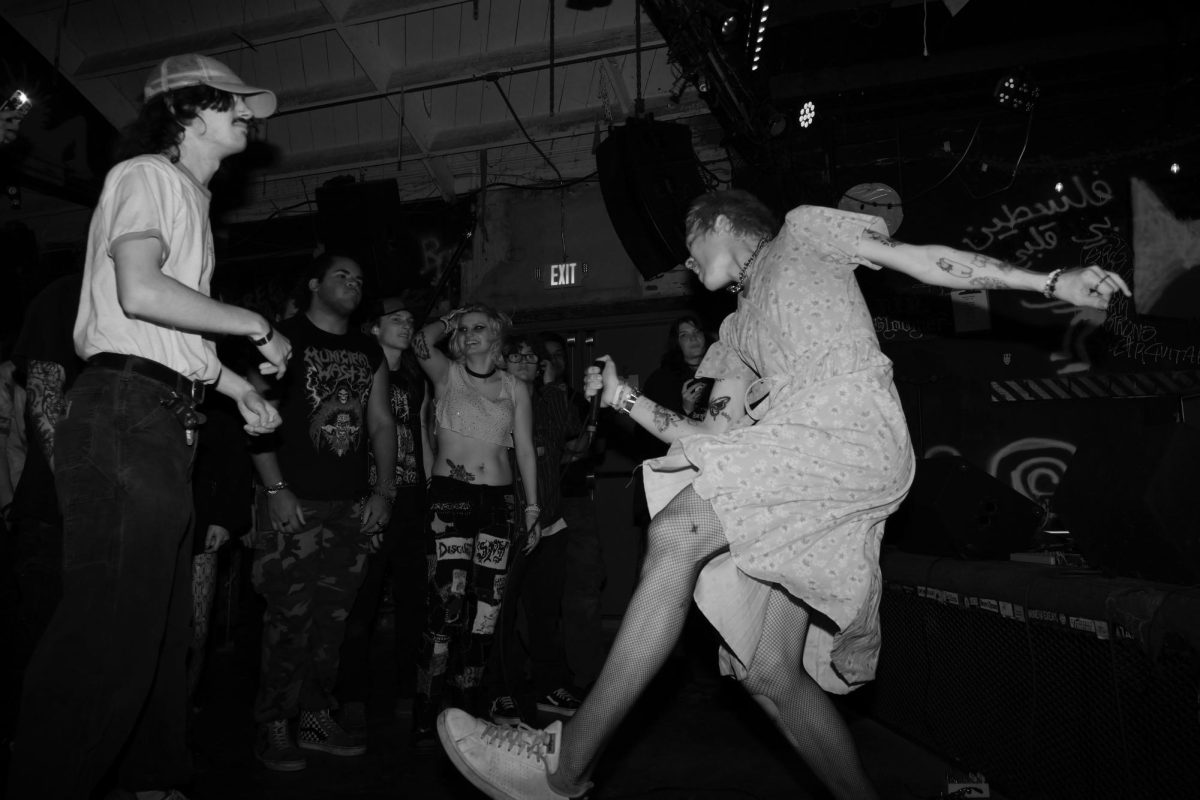As Scott Wheeler took his lunch break, he sat comfortably on the branch of a redwood tree located at the top of Telegraph Hill. Situated 100 feet in the air, he dangled his legs as he admired the skyline, his gaze spanning from Alcatraz to the Bay Bridge. Parrots soon crowded his paradise with a flurry of chirps and squawks. He needed a sign to know he was on the right career path — he knew this was it.
Wheeler has been an arborist for 22 years. Prior to this, he worked a corporate job at a media relations firm, selling cutting-edge Bluetooth technology to companies. However, Wheeler spent most of his time following international soccer teams on an online forum and even became a moderator for Roma, a soccer team based in Rome. Soon after, Wheeler was invited to move to Italy and write for the team. His only obstacle was money.
“I got in a program called WWOOF [World Wide Opportunities on Organic Farms], where I was going to work with some farm families [in] exchange for room and board,” said Wheeler. “I had everything set up; I just needed to make money. That’s when a friend of a friend said, ‘This guy needs help, and you need money.’ ”
The job in question was with Bay Area-based arborist Marty Arnest, Wheeler’s first boss in the industry. The two worked together from 2001 to 2009.
“I knew him when he was 23 […] Scott’s just a great guy,” said Arnest. “I love him; He’s like a brother to me.”
Before this opportunity, Wheeler had no idea that someone could get paid for this kind of work. Soon after, he ended up ditching his plans in Italy to work with Arnest. Ever since he was a child, Wheeler felt that it was his calling to work in nature.
Growing up in San Francisco’s West Portal, Wheeler found a multitude of trees that he would often climb and jump from. But his love for nature was originally fueled by his mother, who was a florist. Some of his earliest memories revolve around playing in his mother’s garden. Despite the support from his mother, to this day, there is still some pushback from his father about getting a real job.
“So Mom was just like, ‘This is obviously the natural path for you and this is a beautiful thing, and I love that you’re embracing that,’ ” said Wheeler. “My dad is just like, ‘Come on, let’s get real: you need to put on a tie and loafers, or it’s not a job.’ ”
However, Wheeler expressed that working with Arnest was not formal enough to make it a full-time career, since he was simultaneously working part-time as a waiter.
Wheeler would commute to his job with Arnest on the bus, then, in the same work clothes, commute to his job as a waiter, where he would have a brief moment to change uniforms and clean himself up. He would go on to do that same routine for another seven years.
Following his work with Arnest, Wheeler began working for Bartlett Tree Experts, who provided a consistent schedule in addition to health care and various other employee benefits. However, he ultimately felt that the work environment wasn’t necessarily for him, and went on to become the senior manager of sales and operations for The Urban Arborist.
The Urban Arborist, founded by SF State alumnus Josef Sikelianos, is a full-service tree company that provides clients throughout the Bay Area with tree care and management. Although Wheeler joined the company later in its development, he quickly became a key figure.
“Scott’s kind of like the glue for the company,” said Sikelianos. “I think every company, especially small companies — they’ll have somebody that’s always there.”
As the senior manager of sales and operations, Wheeler’s tasks included meeting with clients, assessing job sites, calculating estimates, writing proposals and creating schedules for employees.
“I [tried] to make everything as smooth as possible,” said Wheeler. “I feel like that [was] really my role: to kind of be like the good dad figure and try to make sure the clients are comfortable and the crew has everything that they need.”
Wheeler has been with The Urban Arborist for over 10 years; however, his title has recently changed after accepting a part-time position with his dream company, HortScience. To make room for this new job, Wheeler now works part-time at The Urban Arborist as director of operations.
People have traveled from all over the country to work for The Urban Arborist, but most candidates rarely last longer than a month due to the technical ability required.
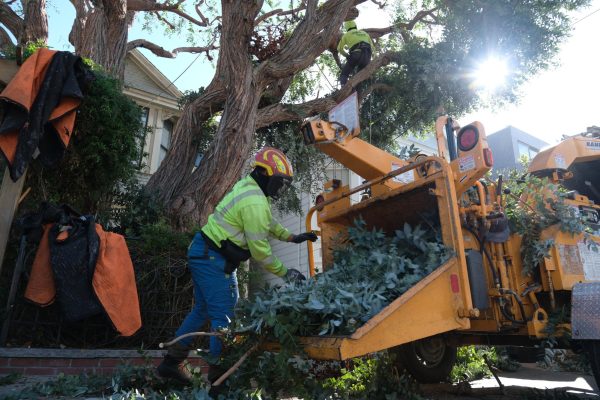
“It’s hard enough to park a smart car in San Francisco — try a massive, 14-foot tall, super-wide tree truck [hauling] a chipper behind it on a one-way street in North Beach; and now you have to back the chipper up a windy hill — and that’s just getting there,” said Wheeler. “Then, you’ve got these giant trees [hanging] over these $5 million homes […] now, this one tree is over six properties.”
Compared to other arborists in California, Wheeler said that some clients’ families tend to think the price of taking care of one tree is ridiculous and unreasonable.
“[There was] one lady who was like, ‘Yeah, we could prune the whole tree for $1,400’—and that was years ago—and her dad was like, ‘Are you kidding me? We had three trees twice the size of that [one] cut down at our property for $900,’ ” said Wheeler.Linda John has been a client of Wheeler for about seven years, and he provides service for the trees at her house in the Mission District. According to John, there is no one else like Wheeler.
When Wheeler informed John that her avocado tree was dying and the best option was to cut it down, she sought out a second opinion. That interaction helped her realize what made Wheeler different from other arborists.
“I don’t know if I went to Yelp or something [… but] this guy was just the worst,” said John. “He was very uptight and he didn’t seem to understand my questions. He gave me a whole bunch of superfluous information, and then he said he’d call back or get back with some information — never did.”
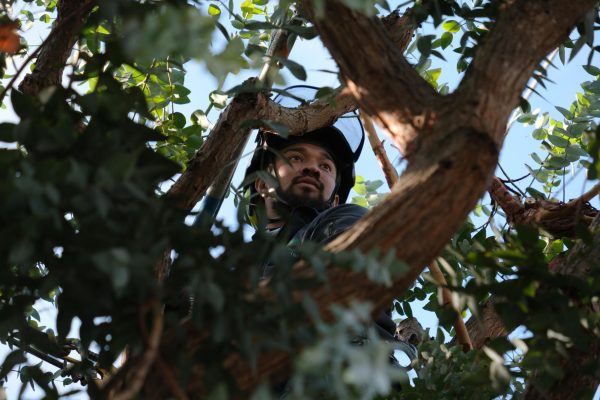
Wheeler’s definition of an arborist is not only someone with expansive tree knowledge, but someone who also has a deep understanding, love and appreciation for trees. While this is his primary source of income, Wheeler prioritizes proper tree care over a paycheck.
“We’re kind of tree doctors in a sense […] we’re not gonna do whatever you want us to do to your tree [just] because you’re paying us to do it,” said Wheeler. “A good arborist is gonna walk away from jobs and say, ‘I’d rather not get paid today than have someone pay me to butcher a tree.’ ”
Isa Gucciardi has been Wheeler’s client for 12 years and originally contacted him to work on the trees in her residential area at a church in Berkeley.
“I don’t feel like he works for me,” said Gucciardi. “I feel like he works for the trees, which is what I really love about him. My experience is that he’s always thinking about the health of the trees, and always thinking about how to advocate for the health of the trees.”
The first time Wheeler’s job as an arborist truly impacted him was after an interaction with an elderly client. At this time, he was just getting the hang of how to make a tree look aesthetically pleasing.
“I was pretty happy with how this one tree turned out, and this old lady came out and she started crying,” said Wheeler. “I shit you not, she was so happy. She was like, ‘I never thought it could look this good […] and it made me almost start crying.’ ”
Conversely, the career can have its downsides; it’s not uncommon for things to get damaged.
“Accidents happen; we do everything we can to mitigate it,” said Wheeler. “Luckily, we’ve never had anybody seriously injured; we’ve never had anybody killed, but we have broken valuable things and we’ve caused people distress, and that’s hard.”
Due to those taxing work days, Wheeler occasionally questions whether or not he has truly made the right decision in his career path. However, he is frequently reminded that he has.
One day, Wheeler received a call from a property management company to evaluate a redwood tree near the top of Telegraph Hill — coincidentally, the same tree he sat in nearly seven years prior, 100 feet up, enjoying his lunch and admiring the San Francisco skyline.
“I was like, ‘This can’t be the same tree,’ […] and I showed up to do the inspection, and I was like, ‘Holy shit, it’s the same tree,’ ” said Wheeler. “It was just perfect kismet. It all came full circle, and so now, we take care of that tree.”
Now that this relationship has been established, Wheeler goes back to inspect the redwood every two years. It is a reminder of why he went into arboriculture, and not to lose sight of the feelings he experienced when he first got paid to climb a tree.


